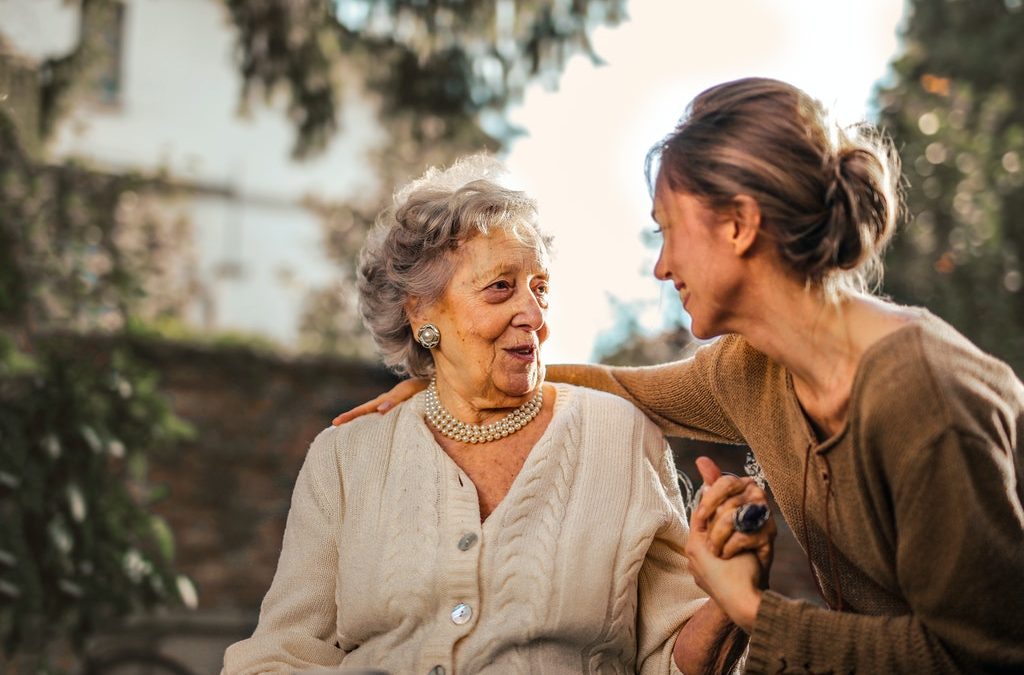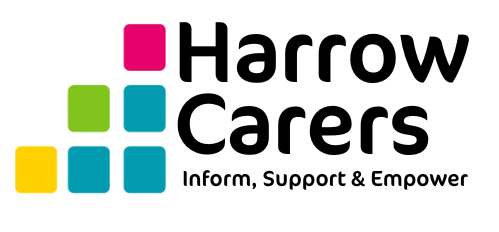
by admin | 21.04.2021
Your caring role may one day come to an end. The loved one you’re looking after may need to move into a care home, need more support, or sadly, they may die. It can be a tough, because for so long they were the focus of your life. Whatever the circumstances, you may be surprised at how drastic of an adjustment it can be. It’s a good idea to start preparing for the future – we share ways of how to adjust to these changes.
If the person you care for needs more assistance
There’s many reasons why you may not be able to continue caring for someone. Their health may have deteriorated and you can’t provide the additional time and energy, or you may even have your own health issues. At this point, it’s wise to think about finding another system of care.
Firstly, ask your local social services department to carry out a care needs assessment – you may find that they are entitled to additional benefits compared to before. It’s recommended to also get assessed yourself, as you may be entitled to extra financial and physical support.
If they need more intensive care
If you find that the person you care for needs more intensive support, then you may need to consider moving them into a care home. You may no longer be able to provide care due to other responsibilities, and perhaps you feel you have let your loved one down. But your well-being is important too, and there’s only so much you can do.
Just because they move into a care home, it doesn’t necessarily mean that you stop being a carer. You may want to continue visiting the person and keep them company, or you may want to provide help whenever you can. It’ll help them get used to the new environment. If you still provide some care, again check with the local council as you may have access to additional carers’ rights and benefits.
If the person you cared for dies
The death of a loved one brings can bring about new feelings. You will naturally feel grief and loneliness from losing someone that was a big part of your life. If they were ill for a long time, you may even feel some relief. Everyone’s reaction and way of coping is completely different. Some find it easier to talk with friends and family who knew the person you cared for, so that you can all share happy memories. Others cope best on their own.
You may have to deal with the necessary practicalities, like organising a funeral or sorting out any financial issues. At Harrow Carers, we can offer advice about all of that and more. Give us a call at 020 8868 5224.
What happens now?
If your caring role has come to an end, naturally you would consider taking time off to recover, both mentally and physically. If caring was the main focus of your life, you may feel confused and a loss of purpose. You may also find yourself with lots of time on your hands but are unsure with what to do with it.
Before rushing into anything, be gentle and allow yourself to recover. Spend time with family and friends and do something you enjoy. It can help to reflect and look back on everything you’ve learned – all the good times you had and how well you coped. Think about all the skills you’ve developed and if there’s any opportunities out there to put them to good use.
When you’re ready, you may need to think about returning to work. You may want to return to the ‘normal’ life you had before caring or have a clean state, but have no idea where to start. That’s where we come in. The team at Harrow Carers can offer you individually tailored support regarding your career, application advice, interviews and much, much more…
Feel free to give us a ring at 020 8868 5224.

by admin | 08.04.2021
It’s natural for us to feel lonely, even more so during the pandemic. Having underlying health problems, additional caring responsibilities, or in the case of the pandemic, being physically isolated from others can all contribute. These are just some examples. There might not be a particular reason why you feel lonely and you don’t need to go looking for one. From all ages, people feel lonely for all sorts of reasons and find different ways to overcome it. Here are a few strategies that may help to combat loneliness.
Volunteer
Volunteering for a cause you believe in can make a real positive impact in your community. It can fight loneliness by increasing self-esteem, create meaningful experiences and allow you to meet people passionate about the same things as you. Additionally, helping those less fortunate than you can bring you a greater sense of gratitude for what you have in your life.
You can volunteer remotely or in real life, just be sure you’re working with others. Finding solutions together as a team can help you decrease loneliness.
Join a club
Whether it’s a book club, a workout session or a cooking class, joining groups based on your interests exposes you to new people and connections. Sure, it can be nerve-wracking to join a club for the first time, but you’re likely to find people who are welcoming and willing to help settle you in. Have a look through your local library to see what’s available, or explore virtual networking sites like Meetup.
Taking Care of Yourself
Maintaining good physical and mental health is more important than ever, especially when experiencing feelings of loneliness. Have a consistent sleep schedule and exercise regularly – the NHS recommends at least 150 minutes of moderate intensity activity a week. Take regular walks in your local neighbourhood as an opportunity to slow down and reflect – use this time to also practice self-compassion. Try talking to yourself in a forgiving, kind and caring way; it’ll do wonders for your long-term mental health.
Learn a New Skill
Loneliness is usually something that is temporary, something all of us naturally experience when going through phases in life. Taking up a new hobby may help to distract yourself from those feelings of loneliness. Perhaps you want to learn a new language, or learn how to design websites. Whatever it may be, take some time to invest in yourself. Check out this website if you’re unsure of which skills to pursue.
Strengthen Existing Relationships
Humans have always been social creatures. Spending quality time with your friends and family is one of the best ways to reduce loneliness. Why not call up a loved one and tell them how great they are and how much you love their company. Be specific, mention what it is you love about them – it’ll make their day (and yours too!).
If you haven’t spoken to your loved ones in a long time, you might be struggling with motivation to reach out. Instead, it may be helpful to start slowly. Think of one friend or family who you could imagine reaching out to and give them a call. It’s so important that you make the first move.
At some point in our lives, we will feel lonely and it can be difficult to cope with. But there are things we can do to feel better, from volunteering and learning new skills to improving our connections with loved ones.
There’s also people who can help. Here are some amazing organisations and support groups that can offer expert advice if you’re suffering from loneliness or any other issues. If you’re a carer suffering from any mental health issues, we can offer you free advice and support at 020 8868 5224.

by admin | 02.04.2021
Anyone can fall into debt. As a carer, it’s just one of those things that happens without your notice, or may even feel as if it’s out of your control. You may have had to give up work and faced the extra costs of utilities, food and disability-related spending. Even so, getting out of debt and staying out is possible – but you have to take the first step. If you don’t know where to start, feel free to contact Harrow Carers at 020 8868 5224 for free advice about managing your debt. We’ll also let you know if you are entitled to any disability and carers’ benefits, or any employment rights if you are currently working. Nevertheless, here are some strategies you can start to implement today to get out of debt.
1. Understanding What Debt You Have
Understanding the type of debt you have, and how it happened can allow you to create a plan for paying it off and staying debt-free. Not all debts are created equally, and some are considered better than others (a mortgage, for example). At Harrow Carers, we can help you to understand your debt, create a budget to help track your expenses, and develop a debt repayment plan.
2. Tracking All Your Debts
It can be easy to lose track of how much you owe, especially if you have more than one type of debt. A debt tracker can be useful to regain control of your finances, and you can watch all your hard work pay off.
Make a list of all your debts. You can use a free pre-existing template or do it yourself on Excel. Write down how much you currently owe, the interest rate for each debt, and the minimum payment required for each month. Use recent billing statements, credit reports and bank statements to help you with this.
3. Prioritise debts with the highest interest rate
By listing all your debts, you can now calculate the total amount you owe. We can now accelerate your debt-free journey by sending more than the minimum payment to at least one of your accounts each month.
Use a monthly budget to calculate all your monthly income and expenses (including the minimum payments). Any amount left over, put some of it towards any of one of your debts. It’s recommended to choose the debt with the highest interest rate as this will save you the most money in the long run. Again, feel free to contact us at 020 8868 5224 if you’re not sure which debts to prioritise.
4. Building an Emergency Fund
An emergency fund is money you’ve set aside for—you’ve guessed it— an emergency. While caring for a loved one, you might run into unexpected circumstances. Your car might break down or you may be laid off from work. As you work towards paying off your debt, it’s recommended to put money aside in a separate account as an emergency fund. If you are in debt, start saving towards £1000, but once out of debt, build this account to cover 3-6 months worth of living expenses. A completed emergency fund will give you the flexibility to tackle unexpected expenses, which makes it less likely you’ll go back into debt again.
You can read more about emergency funds here.
Becoming debt-free can be a difficult process, but there are lots of free and professional help out there. The most important thing is to take action now. Delaying to managing your debts and finances will only make matters worse in the long-run.
If you are a carer and struggling with your debts or have any other enquiries, don’t hesitate to contact Harrow Carers at 020 8868 5224 for free and independent advice.

by admin | 26.03.2021
There’s no doubt that vaccination offers the UK the best exit strategy from the ongoing pandemic. A large portion of the population are still rightly concerned, however. There’s fear about potential side effects, and a concern that the speed of development may have compromised safety.
How safe is the COVID-19 vaccine?
Rest assured that the vaccines approved for use in the UK have undergone strict procedures set by the Medicines and Healthcare products Regulatory Agency (MHRA) to ensure that the vaccine meets applicable standards of safety, quality, and efficacy. The MHRA follows the international standard of safety by testing each vaccine through all the clinical trials and safety checks.
To find out about the three coronavirus vaccines currently approved in the UK by MHRA, visit:
– GOV.UK: Oxford/AstraZeneca
– GOV.UK: Pfizer/BioNTech
– GOV.UK: Moderna
What are the potential side effects?
28.9 million have already their first dose of the vaccine as March 26th 2021, which is well on course to meet the target of 32 million receiving their first dose by 15 April, set by Prime Minister Boris Johnson. So far, there have been no reports of long-term complications and reports of serious side effects, such as allergic reactions, have been very rare.
The more common side effects of the COVID-19 vaccine are mild however and typically only last for a few days; this is your body responding to the vaccine.
Vaccine Hesitancy
Despite the potential side effects being known, there are still worrying concerns regarding the vaccine. Vaccine hesitancy isn’t new – this is when people believe a vaccine is unnecessary, unsafe, or ineffective (and perhaps all three). Some are reluctant to take the vaccine, or avoid it completely altogether. The fact that you may not catch the virus if you break social distancing rules and even if you do get it, the illness is mild anyway, has caused some to not take it seriously. However, it is still so important we try and control the spreading as much as possible, so we don’t pass it onto those who are vulnerable.
Do we want to be vaccinated?
A study conducted by the University of Oxford surveyed 5,114 representative participants asking about an approved COVID-19 vaccine. Promising results were shown as 72% of the population were willing to be vaccinated, with the remaining either unsure or hesitant. Despite this, vaccine hesitancy appears to be prevalent among almost a third of the population. This could be because of poor NHS experiences, discontentment with institutions, and even vaccination conspiracy ideas.
Another survey performed by the Royal College of General Practitioners showed that people of Asian, Black and mixed ethnic backgrounds are 36%, 53% and 67% respectively less likely to be vaccinated when compared to their white counterparts. Of course, they wouldn’t be ill-informed about the severity of the vaccine, but vaccine hesitancy in these ethnic minorities remains disproportionately high. Public health professionals must make it a priority to engage with these ethnic groups to increase their understanding of the vaccine and encourage them to get vaccinated.
If you’d like a more thorough understanding of what to expect from the vaccine in your own language, vaccination leaflets can be downloaded from the NHS England publications site, or using the site below:
https://covid.healthierfuture.org.uk/translated-information
Can I get the vaccine earlier if I am a carer?
A carer is anyone who provides unpaid care for a family member, partner or friend because of any illnesses or disabilities. If you have been receiving Carer’s Allowance for a while, or have a carer’s flag on your GP record, you are on a higher priority list to take the vaccine. You can either wait to be notified via letter to take your vaccine, or you can book a vaccination appointment if you are a main carer of someone at high risk of coronavirus.
Feel free to contact Harrow Carers at 020 8868 5224 if you’re unsure whether you are able to book your vaccination appointment, or have any other concerns.
Each of us has a responsibility to get vaccinated whenever possible; it’s important for your health, the health of your family and the health of the country. There is light at the end of the tunnel, but it’s important that we’re exposing ourselves to information we can trust. Public health experts should be up and down the country, presenting the right information, listening to the concerns of others and responding transparently. We can also do our part to counter, and limit the spread of, vaccine misinformation.

by admin | 12.03.2021
What is the census?
The census is a survey that provides a detailed picture of all the households in England and Wales – everything from your ethnicity and age to employment and religion.
It happens every 10 years, with the next census taking place on Sunday 21 March 2021.
Each household will receive a letter on that day containing a unique 16-character access code. Individuals can then fill out the form online, via their phones, laptops or computers by visiting census.gov.uk.
You are encouraged to fill the form online, but you can request a paper copy by visiting the official census website.
If you do not receive a letter on 21 March, contact 0800 141 2021. If you need any help filling out the census, contact Harrow Carers at 0208 868 5224.
Failure to complete the census may result in a £1000 fine
The census only needs to be filled by one member of the household on 21 March 2021 or as soon as possible after. Failing to do so, a field officer will visit the house to encourage residents to fill it in. Those who still do not take part, or give false information, will face a fine up to £1000.
The census as a whole is compulsory, but questions on sexual orientation and religion are voluntary.
Identifying as a Carer
It’s important for you to let the census know you are a carer. More than half (54%) of carers took over a year to recognise that they are a carer, with nearly one in four carers taking 5 years to identify as a carer.
If you are someone who is providing unpaid care for someone who has any illnesses or disabilities, whether that be routinely helping out with the shopping or medication, then you are a carer.
The government can use this information to plan and fund local services to aid you. We at Harrow Carers will also receive this data, allowing us to make decisions on how to better our services and support your needs.
By identifying as a carer, Harrow Carers can help you prioritise your own physical and mental health. We’ll also point you in the right direction to any financial and practical support that you’re entitled to.
One question about carers
There’s one question about carers in the 2021 census.
You’ll be asked:
“Do you look after, or give any help or support to, anyone because they have long-term physical or mental health conditions or illnesses, or problems related to old age?”
You can either choose “No” or “Yes”, and then select how many hours you care during a week if you choose “Yes”. This ranges from 9 hours to 50+. If you identify yourself as an unpaid carer, be sure to select “Yes” for Question 24.
How can the census help carers?
The data obtained from the census can help carers’ organisations to make better informed decisions and improve their services to best suit your needs.
The census will provide information about carers and their situation, including:
- How many carers there are currently in the UK
- The gender breakdown of carers
- Population density of carers across the UK
- Age range of carers and how this differs across each area
- The 2021 census will also ask, for the first time, questions about sexual orientation to help identify LGBT carers. These questions are voluntary, so individuals do not need to answer these if they do not want to.
If you need any help filling out the census, feel free to contact us at 0208 868 5224.

by Rehna Tanna | 08.03.2021
“A good education is the foundation for a better future.” – Elizabeth Warren
Schools across England are reopening today as we take the first step in lockdown easing. Remote learning has not been kind to many students in the past year, creating a big gap between those who are privileged enough to have the proper tools to do school work and those who can’t afford them. As a result, a lot of children don’t feel like they have the support they need. This is even more the case for carers, especially young carers who have to juggle their caring role with adapting to remote learning.
Fortunately, we are finally starting with lockdown easing. According to Prime Minister Boris Johnson, schools reopening “marks a truly national effort to beat COVID-19” and a national effort is what is needed to provide children with the education they deserve during this time. Even with the safety concerns that face this moment, we are sure together we can beat this.
We at Harrow Carers would like to say a big thank you to everything school and college staff have done over the past year and express our appreciation of your hard work, determination, duty and care for the education of children! Your work does not go unnoticed and we are more than grateful.
Above all, we might be moving forward slowly, but we will get there surely!
If you or your children need any support with adjusting to the new school environment, please visit the following sources:
- Samaritans: if you need to talk to someone.
- Rethink: top tips on managing your mental health.
- Harrow Council: council updates.
- BBC: testing guidance during school reopens.






